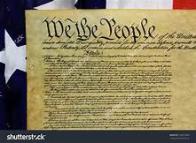Supreme Court: Imagining John Roberts Explaining Himself
By: Kyle Smith (National Review)



Ever since I was a little boy, the other boys never called me "John" or "Johnny" or even "Roberts." It was always "John Roberts." The words would always run together, so in essence my name, to one and all, was "John Roberts." "John Roberts, did you hear wrestling practice was canceled?" "John Roberts, Father Reilly said he wants to see you after Mass." "John Roberts, do you want to go to the Dairy Queen for a root beer?" (Root was the only kind of beer I drank.) I did consider it a little strange when my own father started calling me "John Roberts," but I didn't mind. It was simply a gesture of respect for my immense propriety. I wanted to impress my elders with my rectitude, and I think I did.
I impressed the other students too. I know I was not seen the way the other boys were. People didn't ask me, "Hey, John Roberts, want to go get high and see Gimme Shelter?" More often they would ask me for my opinion about cross-comparing the various options in life-insurance annuities or what model sedan I considered the most decorous and respectable. (Buick. Always Buick.) Often a group of boys would approach me, and one boy in the group would ask me these kinds of questions while his friends stood around, snickering at some private joke to which I was not privy. In retrospect, I suppose these were strange questions to ask a high schooler, but then again, it was my practice to wear long, black silken robes everywhere I went, just to be prepared for my future. I guess you could say young Kavanaugh did enough youthful hijinks for the both of us. He once told me he went to see Porky's when he was only 16 and a half! Can you imagine? He's a card, that boy.
Sometimes the fellows would ask me for my philosophy of life, which is intertwined with my legal philosophy, which is what I want to speak to you about today. I know that some of you are calling attention to how, when the liberals have five votes without me, I sometimes let forth a mighty roar denouncing the irreparable harm to our constitutional fabric, but when the liberals have only four votes without me, I tend to join them, while issuing a meek, technicality-filled ruling explaining why I'm unable to do anything conservative because, well, that's just how the law works. I know that some of you are calling my judicial philosophy "Loserism" behind my back, and that is hurtful to me. Our side is not "losing." That's preposterous. I prefer the term "alternative winning."
Let me explain how alternative winning works. This week, though I did stop the liberals from singling out religious schools for punishment in Montana, I know I disappointed conservatives when I voted the wrong way about abortion (again) and even voted against myself, just four years ago on a very similar case. What you don't give me enough credit for is quoting Edmund Burke in my decision. Burke, I need not remind you, is a conservative icon. You think you would have gotten a Burke reference out of Sotomayor or Kagan? No, that's what John Roberts gave you. I don't merely let our adversaries whip conservatives about the head and neck with rusty chains, I quote Edmund Burke while I join them in whipping conservatives about the head and neck with rusty chains. Burke should warm your heart as you pass into unconsciousness because your spinal column feels like it's being stomped on by orcs. Alternative winning.
Some of you have pointed out that when I joined the liberals to save Obamacare eight years ago by declaring that the penalty for not complying with the individual mandate was a tax, I not only disagreed with the people who wrote the law but switched sides at the last minute. It wounded me when some of you described this as "chickening out." I prefer to think of it as "alternative courage." As I said at the time, "It is not our job to protect the people from the consequences of their political choices," even constitutionally dodgy ones. You vote it, you got it! When it comes to American voters enacting any limits on abortion whatsoever, though, it is most definitely my job to save American voters from the policies they vote for. You vote it, you must be stopped!
The rules, as Elena Kagan has so helpfully explained to me, are straightforward enough: Abortion is not in the Constitution, but it's implied by the right to privacy, which is also not in the Constitution, but the implications within these non-specified rights are super-specific. Even down to the level of whether Louisiana medical professionals doing abortions must be held to the same standards as Louisiana medical professionals doing LASIK: This question was settled for all time back in 1787. Though I was on the opposite side of this particular question in 2016, the doctrine known as stare decisis means I am not allowed to agree with 2016 me.
Stare decisis, of course, is Latin for "I can't do anything hard." True, I voted to overturn longstanding precedents in Citizens United v. FEC (2010), Janus v. AFSCME (2018), and Knick v. Township of Scott (2019), which means "respects the precedent" goes out the window when I'm feeling up to doing my job. You might say that it is our duty as Justices to drop-kick bad precedents, as we have done throughout the whole history of the country. Sometimes I do that! If it's not too hard.
But the Louisiana case is quite hard, because it's about abortion. You may have noticed that when the liberals don't get what they want on abortion, they turn . . . grouchy. This matters, because they get to write all of the newspaper stories and history books. It is therefore my considered judgment that if I did anything that made it the least bit difficult for any American to get an abortion, my well-earned reputation for judiciousness would suddenly be worth about as much as a Jefferson Davis statue in Harlem. It is my settled view that no one should ever be mad at John Roberts, pillar of rectitudinous propriety.
Fellows, I worked really hard to be boring. My passion in school was Latin. Do you think I want there to be a chapter in the history books dedicated to hating John Roberts? The U.S. is one of the seven most permissive countries on earth for abortion. That may be unfortunate, but as long as it stays that way, no one's dragging an effigy of John Roberts through the streets.






